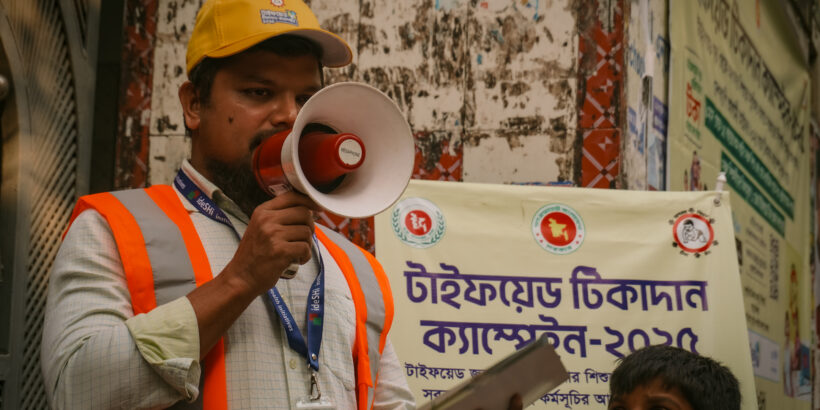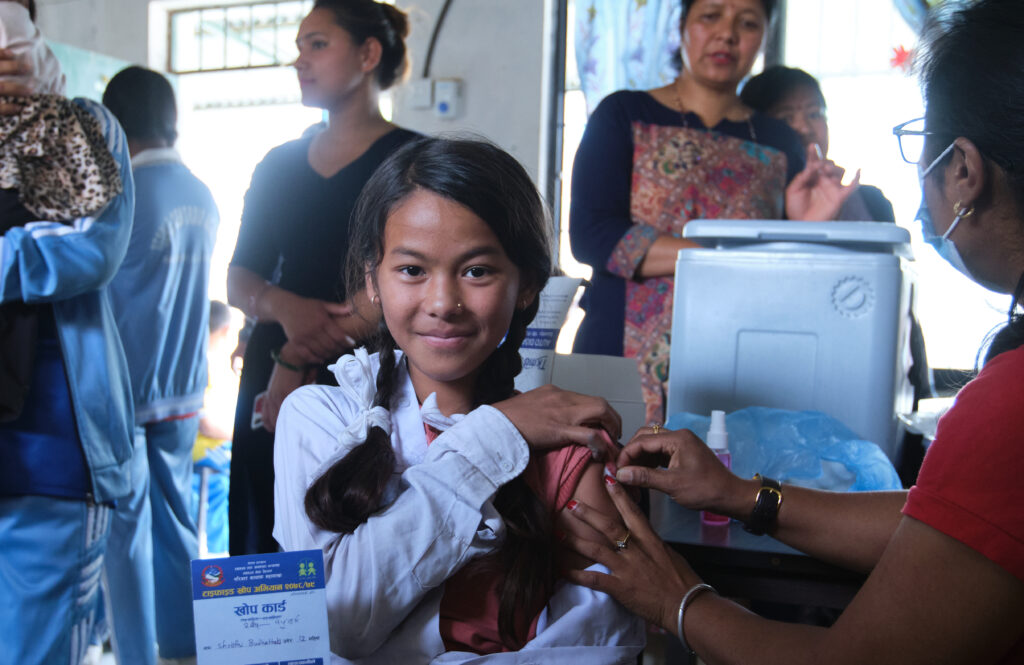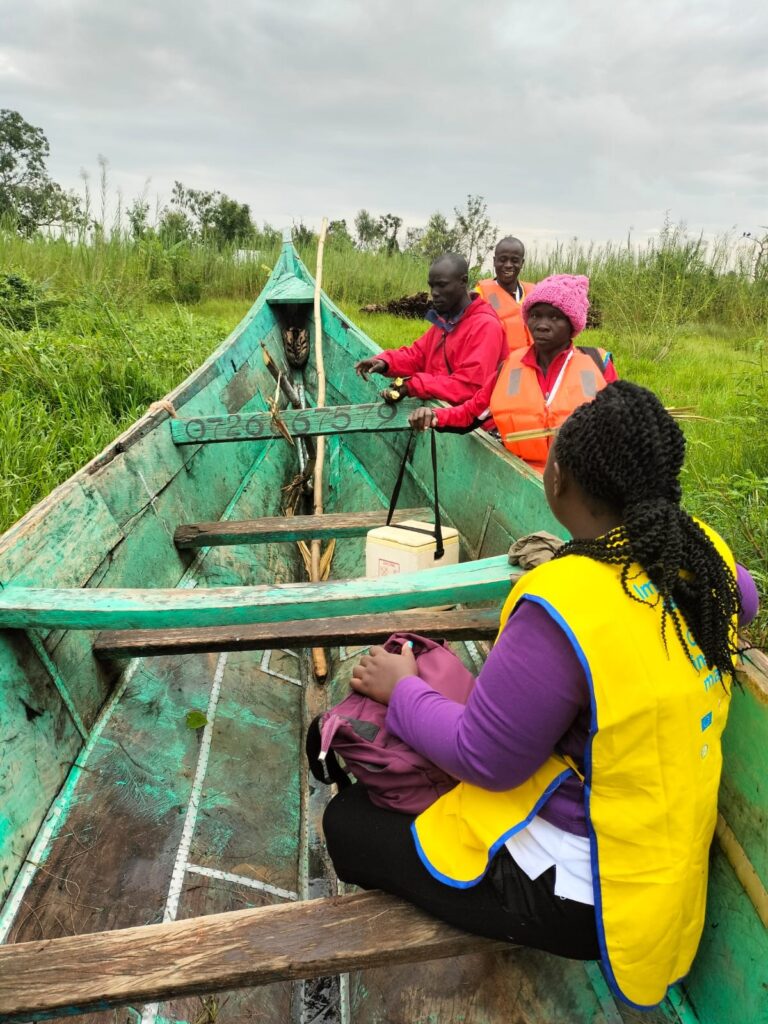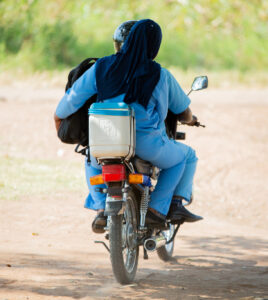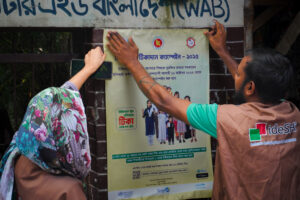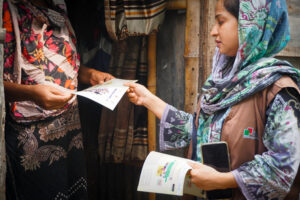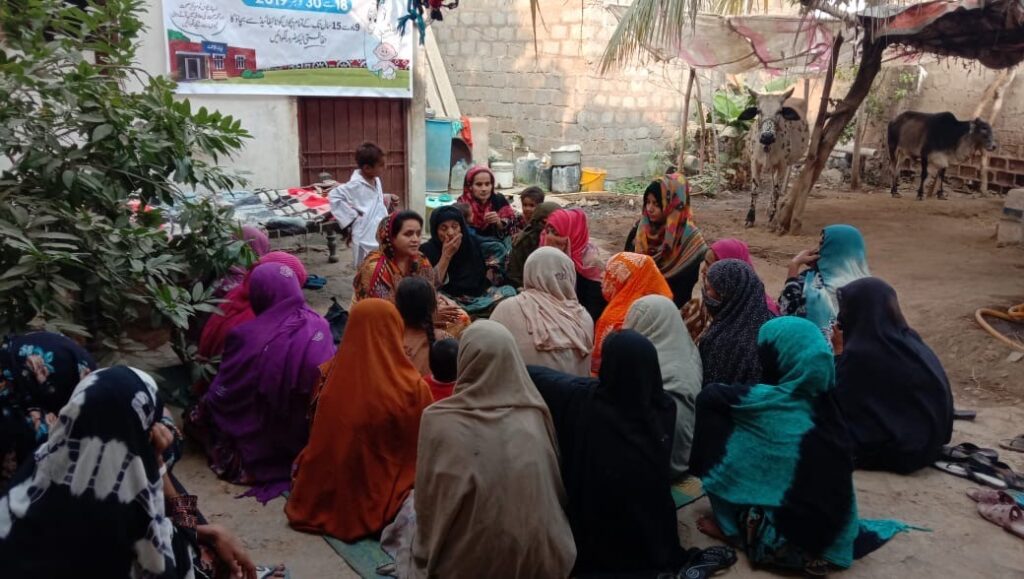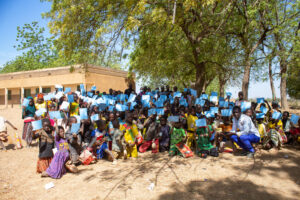In October 2025, Bangladesh introduced typhoid conjugate vaccines (TCVs), bringing the total number of children who have received TCV during a campaign to more than 130 million. This milestone would not have been possible without commitment and collaboration from stakeholders across the globe: political leaders, ministries of health and Expanded Programme for Immunization managers, vaccinators and nurses, community health workers, researchers, advocates, and of course the parents and caregivers who bring their children to receive TCV.
Preventing typhoid with TCV and improved access to safe water and sanitation has never been more important. Drug-resistant typhoid is becoming more common, making treatment more difficult and increasing the risk of dangerous complications like typhoid intestinal perforation. As we observe World Antimicrobial Resistance (AMR) Awareness Week, we celebrate all those who are taking action to protect children against typhoid and stop drug resistance.
Vaccinators: Stopping the spread of drug-resistant strains
Drug resistance happens when bacteria, viruses, fungi, or parasites evolve over time and stop responding to antibiotics or other drugs. This makes diseases like typhoid more difficult to treat and raises the chances of disease transmission, serious illness, and death.
Vaccinators and health workers who deliver TCV have a critical role to play in reducing drug resistance. TCV is highly effective against typhoid, including drug-resistant typhoid, and can help reduce antibiotic use, halt the spread of drug-resistant strains, and keep bacteria from developing resistance to.
Photo: Administering TCV during Nepal’s introduction of the vaccine in 2022. Credit: PATH/Rocky Prajapati.
Across the globe, vaccinators and immunization campaign workers have gone, and continue to go, above and beyond to reach children with TCV—whether on foot, on a motorbike, or even by canoe. Thanks to their perseverance, even children in the most remote communities have received TCV.
Left: Campaign workers traveled by boat to reach Madua Primary School in Busia County, Kenya, during Kenya’s TCV introduction campaign in 2025. Credit: Penina Onyango.
Right: Health surveillance assistants from Chiseka Health Centre in Chikwawa, Malawi, ride a motorcycle to a community vaccination center. Credit: TyVAC/Madalitso Mvula.
Spreading the word in communities
Getting the word out is essential during any immunization campaign. Community mobilizers and community health workers have the critical role of educating parents and caregivers about TCV. Local faith and civic leaders, influencers, and community-based organizations also serve as trusted spokespeople who can promote the value of TCV in their communities.
Photos: Immunization campaign workers share educational materials to raise awareness during Bangladesh’s TCV introduction campaign. Credit: TyVAC.
Subnational leaders can also have a significant impact as advocates for TCV. When Burkina Faso introduced TCV in 2025, the country’s regional governors all acted as vocal proponents for the vaccine. Many of the governors visited vaccination sites and held launch ceremonies, building support and enthusiasm for TCV. By engaging directly with their constituents, subnational leaders can ensure that communities have accurate information and help boost turnout during a campaign.
Photo: Burkina Faso Minister of Health Robert Lucien Kargougou stands with children and country leaders at the launch of the country’s TCV introduction campaign. Credit: TyVAC/Build Africa Communications.
One shot, and a big difference
You don’t have to be a doctor or a nurse to take action against drug resistance. Anyone who champions TCV—whether it’s caregivers who bring their children to be vaccinated or volunteers who spread the word in their communities—is helping to prevent the spread of drug-resistant typhoid and secure a safer, healthier future.
Photo: Women participate in an educational meeting on TCV in Sindh Province, Pakistan, in 2019. Credit: PATH/Asad Zaidi.
It’s thanks to the contributions of these countless everyday heroes that more than 130 million children have received TCV globally. TCV is safe and effective for children as young as 6 months of age, but many older children have been vaccinated, too. It’s not just caregivers who are TCV champions—it’s also the children who set a positive example for their classmates and friends.
Left: A girl receives TCV during Nepal’s introduction campaign in 2022. Credit: PATH/Rocky Prajapati.
Right: Children in Burkina Faso hold up their vaccination cards after receiving TCV. Credit: TyVAC/Build Africa Communications.
Every dose of TCV is a step toward a world where children are protected from typhoid and drug resistance is no longer a threat. As we mark World Antimicrobial Awareness Week, let’s continue to support the TCV champions who are making a lasting difference and taking action against drug resistance.
Cover photo: An immunization campaign worker spreading the word about TCV during Bangladesh’s TCV introduction in 2025. Credit: TyVAC/Rofiqur Rahman.

